I Don’t Believe in Normal: What My Little Brother Taught Me About Special Needs
My brother was officially diagnosed with Asperger’s Syndrome, a form of autism, when he was five years old. I’ve come to learn that this isn’t a bad thing, it just means that he is unique.
Everyone has difficulties and trials in their lives. However, most of us take for granted how fortunate we are. For more than one billion people, nearly 15% of the world’s population, life is challenging because of some form of mental or physical disability. As someone who has grown up with a person with special needs, I tell you, living day to day isn’t easy for them.
I quickly learned as a child that my little brother wasn’t like everyone else.
Some of the first signs my brother exhibited as a child that led to the suspicion of him being on the spectrum were his obsessions over things, his sensory challenges, and lack of need for physical contact.
He also showed signs of social anxiety, he paid very close attention to the smallest details, and he took everything literally.
He was officially diagnosed with Asperger’s Syndrome, a form of autism, when he was five years old.
I’ve come to learn that this isn’t a bad thing, it just means that he is unique.
I’ve heard many people say that those with special needs aren’t “normal,” but what is “normal”? Personally, I don’t believe in “normal.” We all have our own, unique traits about ourselves and that’s what makes us who we are.
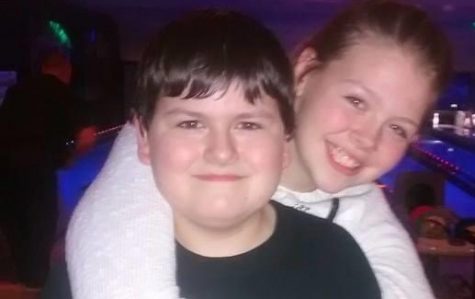
Knowledge and empathy can go a long way when encountering and working with people with special needs, especially children.
It is very common for someone with special needs to have social anxiety. Most of the time, they aren’t able to communicate or socialize as most people can. I have experienced this first hand.
When my brother was little, he used to love to dress up in superhero costumes and act out his superhero fantasies. He would often do it whenever someone visited our house.
When a car would pull up to our house, my brother would run to his room, put on his costume, and come out as that character. Most of the time he would act like Spider-man and “shoot webs” at the guests.
What I didn’t realize at the time is that he didn’t do it just because he was little and enjoyed pretending to be a superhero. My brother did this because he wasn’t able to communicate with people as himself. The costume made him feel safe and made him feel like it was okay to talk to the person visiting our home.
Sensory processing challenges is another common characteristic of someone with special needs. There are two different types of sensory processing challenges. There is hypersensitivity, where someone is over sensitive and there is hypo-sensitivity, where someone is under sensitive.
When someone has hypersensitivity, they often tend to avoid sensory input because it would be too overwhelming. When someone has hypo-sensitivity, they tend to look for more sensory stimulation.
These challenges make it extremely hard for them to wear certain clothes, eat certain foods or even show affection because even something as little as a hug can be too much.
For example, when my brother was younger, he had issues with socks. The seam inside the sock would bother him, especially when he would wear shoes with the socks. We began trying different kinds of socks to see if they were better for him, however, most of them were worse. For a while, my brother just didn’t wear socks. At first, he would wear sneakers without socks, but after he ruined about three pairs, he decided he didn’t want to do that anymore. He began wearing slide sandals, so he didn’t have to wear socks. He even wore them in the winter.
As my brother got older, he learned how to fix most of his sensory challenges, however, some of them still bother him.
Some may even be both sensory avoiding and sensory seeking. They may be oversensitive to some sensations, and under sensitive to others. A child’s reactions can also change from one day to the next, or even throughout the day, depending on the environment or situation.
Many people with special needs also struggle with not being able to communicate like most people can. People often have disabilities that affect their hearing, speaking, reading, writing, and or understanding those who don’t have the disability. This makes it hard for them to learn in school, communicate with others and socialize.
For example, when my brother started kindergarten, the changes in the environment and the big crowds of students and faculty overstimulated him. My brother really struggled with the structure of learning and having to communicate and socialize with the other students. These situations often led to my brother having a meltdown.
Meltdowns are a common challenge people with special needs face. Many people with special needs have meltdowns due to being overstimulated. These can be caused by lights, smells, textures or even noises.
In my personal experience, it seemed as though everything could set off my brother. We could make one wrong move and it would make him have a meltdown.
One major meltdown my brother had was when my family was going trick-or-treating on Halloween. My whole family decided we were going to dress up as characters from the Batman series. I was the Penguin, my sister was Cat Woman, my older brother was the Joker and my little brother, of course, was Batman.
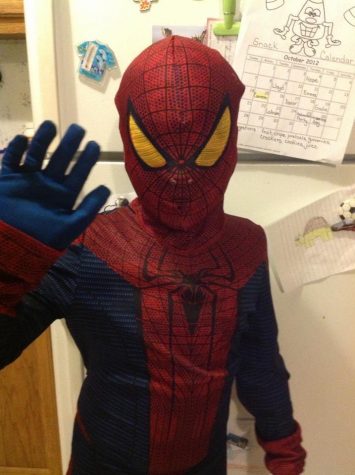
My little brother was so excited to go trick-or-treating that year but once my parents began putting layers underneath his Batman costume to keep him warm, my brother broke down. Between his sensory challenges being affected by the layers of clothing and his social anxiety of being out in a public place, my brother got overstimulated and had a meltdown.
This was especially difficult for my mom, because in public people often think that the child is acting out because of lack of parenting, or that the child isn’t used to getting whatever they want. They look and think that if they were their child, they would never act like that because they raised them differently, when really, it isn’t the child or the parent’s fault. The child is just overstimulated.
However, as my brother learned to stay away from things that overstimulated him, my family and I learned what to do to avoid meltdowns.
One of the biggest challenges people with disabilities face is a lack of services, people, and systems.
Although there is a lot in the world today to help people with disabilities, they still struggle with common things.
Many people who have a disorder are wheelchair-bound or have trouble moving around on their own. There are many places that aren’t accessible to these people. This makes it hard for them to move around and get to the places they want or need to go. Many people also face the struggle to get the technology they need.
There are all kinds of technology that are assistive, adaptive and rehabilitative, that many people can’t get access to or can’t afford. These technology devices could be life-changing for those who need it, but many people can’t get it. Some people don’t even have access to a place that can help them.
There are many places made to help people with disabilities, however, for some people, it is impossible to get to them. Whether it’s a money issue, transport issue, or just simply there isn’t a place within a reasonable distance of their home, this is a challenge people face every day.
A challenge that can be fixed easily that many of these people face is other people’s negative attitudes towards people with disabilities. Although not everyone does this, some people stereotype, stigma, prejudice and discriminate against those with disabilities. These things aren’t always done on purpose, but they do happen.
People sometimes stereotype those with disabilities, assuming that their quality of life is poor. People also even stereotype that those with special needs are unhealthy because of their situations.
Depending on people’s ideas of disability, some people see disabilities as a tragedy, something that needs to be cured or fixed, a punishment for wrongdoing or that the person has an inability to behave properly in a social setting. People believing and acting upon these things just make situations for people with special needs worse.
Everyone is special and unique and I think we all need to embrace that instead of judging people for it.
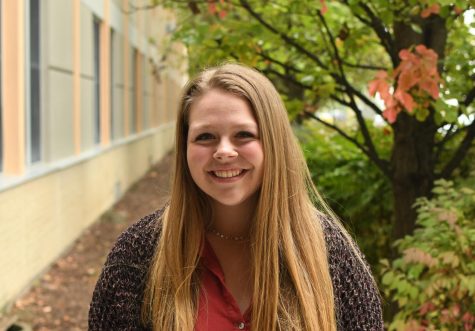
Hello there! My name is Lindsey Walk and I am a senior this year at TAHS. This is my second year being involved in Eagle Eye and I am so excited to be...



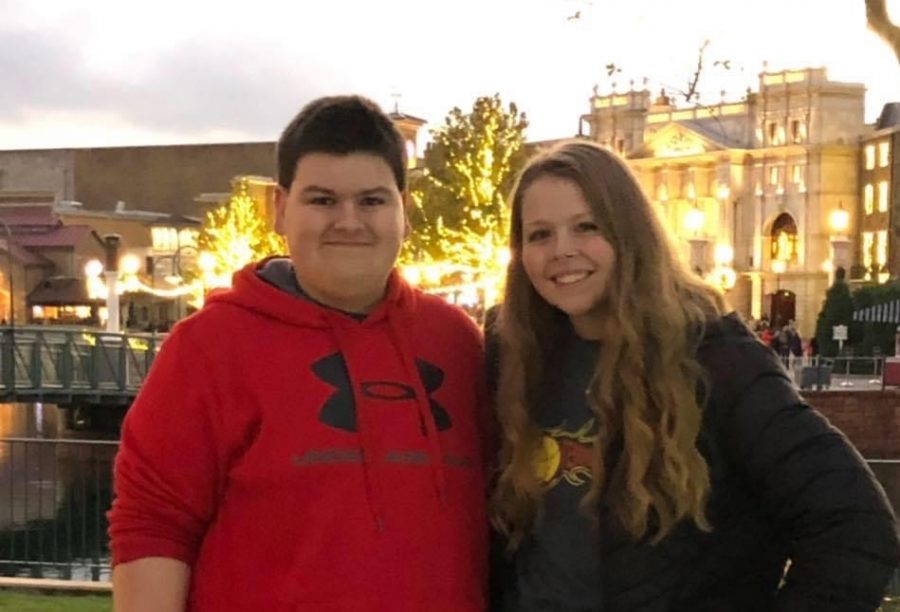


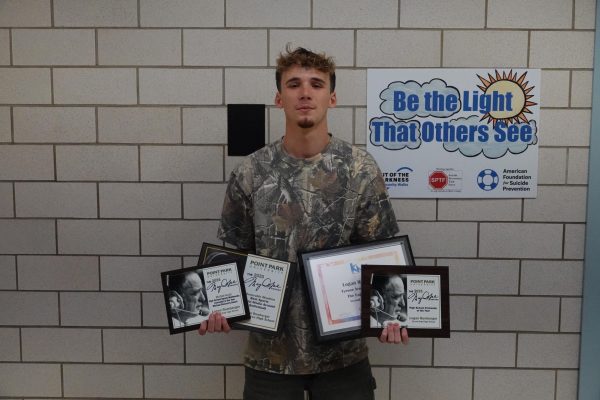



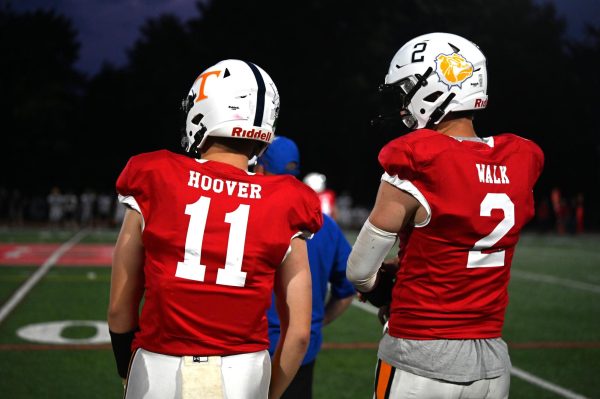

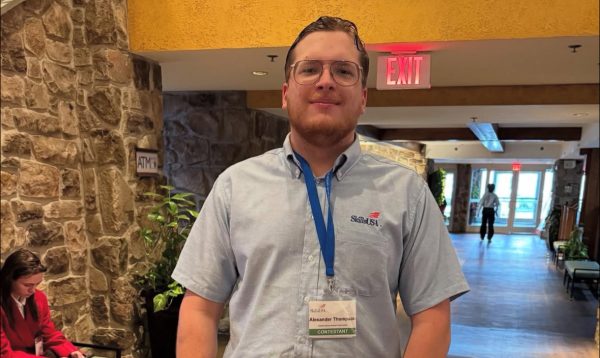
Karen Krebs • May 7, 2020 at 6:03 am
This is a Great story and you did it so beautiful, I think your story was so personal and precious to love unconditionally no matter what the conditions are, it also shows your compassion is so deep for your brother and anyone with special needs. I have a nephew that also has special needs but he brings much JOY to our family and we all love him unconditionally and has made me more sensitive to others, keep up the GOOD WORK Lindsey, you are beautiful inside and out.
Brad Wagner • May 4, 2020 at 10:18 pm
My favorite part was when you said there’s no such thing as normal. Every one has a special God given set of personality traits, strengths, weaknesses, talents, and desires. If someone thinks there’s a normal it’s probably because they can’t accept people that are different from them. They’ll regret it when they realize, most of the greatest world changers, like Albert Einstein and Bill Gates had either A.D.D., Autism, or Asburgers.
Debbie Woolford • May 4, 2020 at 7:50 pm
What an educational insight of being a sibling sharing the window of the world of autism
Your love and caring personality will help open the door to acceptance. Well written and you are.your brother’s true advocate.
Susan O'Brien • May 4, 2020 at 6:09 pm
This is a wonderful article. It tells us a lot about Lindsey’s brother and about Lindsey herself. Thank you for telling his story in such a caring and understanding way.
Elaine Conrad • May 4, 2020 at 5:41 pm
A thoughtful and informative article! Very well written. Thank you, Lyndsey!
Mrs. Oliver • May 4, 2020 at 1:19 pm
Very touching story. Excellent job writing about a topic that is difficult and personal.
Sue Plank • May 4, 2020 at 12:53 pm
I think Lindsey did a wonderful job with this. I’ve known Lindsey and her family since she was 6 years old. I’ve known her brother that long also. I love this family as my own. Lindsey has been so good with her brother. They’ve had there brother sister issues but Lindsey handled it admirably. I am so proud of the young woman she has become. I wish her all the happiness in the world. She truly deserves it.